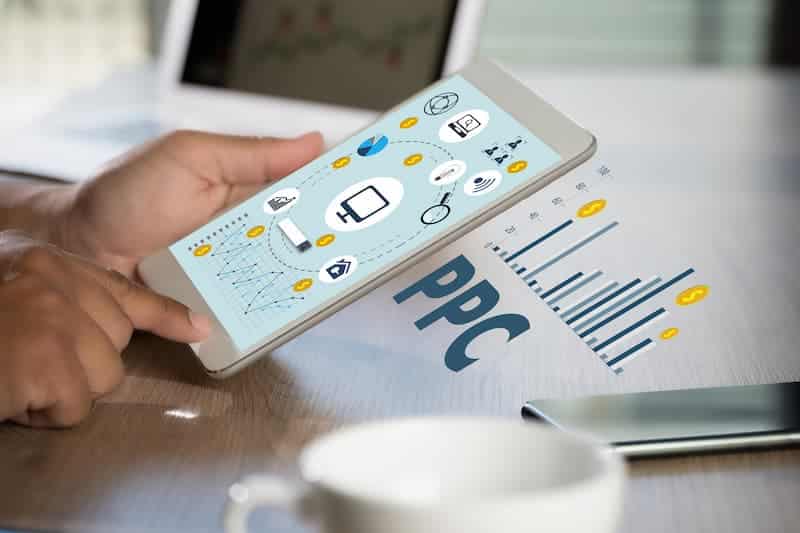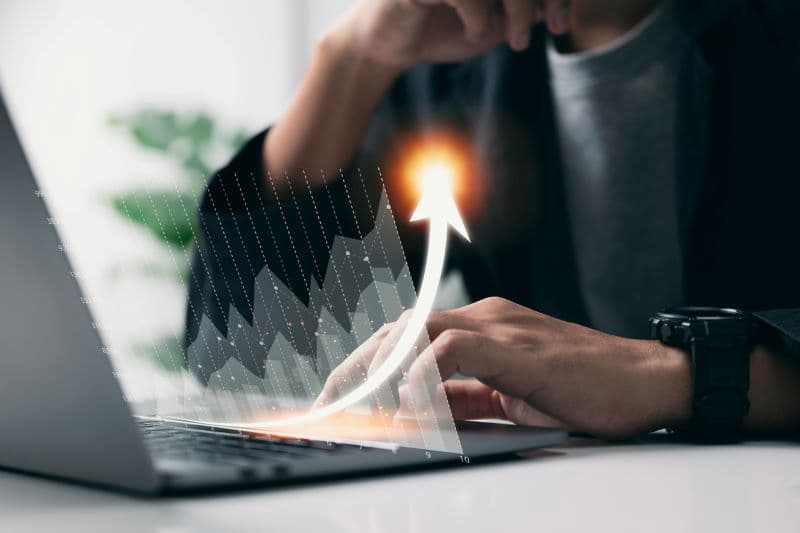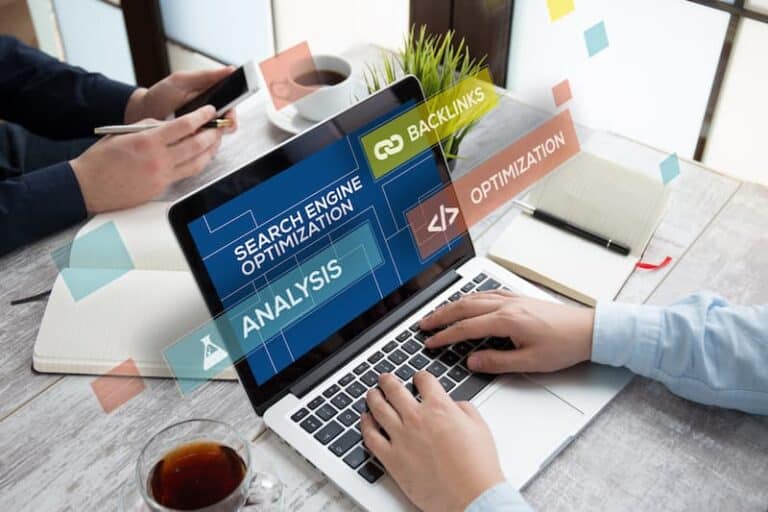SEO vs. PPC: Differences, Pros, Cons, and Which To Choose

When you are looking to grow your online presence, you have several valuable tools, digital advertising, and marketing options available. Among those, two of the most popular marketing campaigns to increase online visibility are SEO (search engine optimization) and PPC (pay-per-click).
Deciding between SEO vs. PPC, and which one or both is best for your business, depends on your marketing objectives and goals. We encourage you to continue reading to learn more about what SEO is, what PPC advertising is, and which is best for your business.
What Exactly Are SEO and PPC?
Search engine optimization (SEO) and pay-per-click (PPC) are two different marketing strategies that share the same goal: finding and driving user traffic on search engines directly to a business’s website.
Both SEO and PPC are powerful tools, each with their specific similarities and differences when it comes to getting your business in front of the right users.
What Is the Difference Between SEO, SEM, and PPC?
Search engine optimization vs. pay-per-click are both marketing strategies for improving your online visibility. However, they rely on different methods to achieve that goal.
What Is SEO?
Search engine optimization (SEO) focuses on improving your organic search rankings in search engines, like Google or Bing, and moving you up higher in the search rankings results. It is used to attract “unpaid” traffic and encourage people to visit your website.
SEO requires optimizing your website content, utilizing the right mix of keywords, and ensuring your website is mobile-friendly. It also requires your website pages to load relatively quickly and satisfy other search engine algorithm criteria. SEO is a long-term strategy as it takes several months before results are realized.
Some important SEO terms you should know are:
- Organic ranking: A page’s organic ranking is the placement it shows up in SERPs (search engine results pages).
- Keyword research: Keyword research is the process of identifying, selecting, and analyzing popular search terms that could be incorporated naturally into your online content to improve your ranking results, and increase traffic to your website.
- On-page: On-page SEO is optimizing the content on each of your website pages using appropriate keywords, title tags, header tags, and meta descriptions.
- Off-page: Off-page SEO is optimizing your visibility and ranking on search engines by incorporating high-quality backlinks into your page content. It also involves online reputation management.
- Technical SEO: Technical SEO is the “behind-the-scenes” optimizations that improve page load times, ensure mobile-friendliness, and consistent, fully functioning website structure.
- Content: Content is the text, videos, and images on each of your pages.
What Is PPC Advertising?
Pay-per-click advertising involves creating online ads targeting specific keywords or audiences that appear at the top of search results, providing immediate visibility. When someone meets your ad criteria, the ad is displayed. You only pay for PPC ads whenever someone clicks on them.
Essential PPC terms to know are:
- Keyword bidding: Keyword bidding involves deciding how much you are willing to pay for an ad when someone clicks on it.
- Ad creation: You need to create effective ads that will drive conversions and encourage people to click on the ad.
- Landing pages: Landing pages are the page where the user is taken after clicking on the ad. The landing page should be relevant to the ad, and provide an effective call to action (CTA) to encourage conversions.
- Campaign management: Campaign management involves monitoring your results and making adjustments as needed.
- Ad budget: This is the amount of money you have budgeted to spend on a particular PPC campaign.

SEO vs. SEM vs. PPC: Key Differences Explained
Another vital aspect of digital marketing is being aware of the key differences between SEO vs. PPC, SEO vs. SEM, and PPC vs. SEM. SEM (search engine marketing) is the digital marketing strategy that encompasses both paid and organic activities to help increase your website’s visibility and drive conversions. Both SEO and PPC are part of SEM. The methods you use will influence the outcomes of your marketing campaigns.
Speed of Results
- SEO: SEO is a gradual process, and results take time to materialize. It can be several months before you start to notice improvements in organic rankings.
- PPC: When it comes to SEO vs. paid search, PPC provides instant visibility once campaigns are launched when search results match your keywords or targeted audiences.
- SEM: SEM provides a mix of both immediate (PPC) and long-term (SEO) results to achieve your goals, depending on the strategies employed.
Cost Structure
- SEO: The cost structure of SEO primarily involves time, expertise, tools, and effort to conduct an audit of your current web pages, create new content, and perform technical updates.
- PPC: The PPC cost structure is dependent on your budget, the amount you are willing to pay per click, and how long you want your ads to run. PPC provides more control over your costs as you decide how much you want to invest, and once you hit that amount, your ads stop.
- SEM: SEM provides a balanced approach to digital marketing and involves the combined costs of PPC advertising vs. SEO, and deciding how to allocate your budget between SEO efforts (time, resources), and PPC campaigns (ad spend).
Traffic Quality and Intent
- SEO: This attracts users actively searching for relevant information, often with higher intent.
- PPC: This can target specific demographics and interests, allowing for precise audience reach.
- SEM: This aims to capture a broader spectrum of traffic, from highly targeted ads and SEO organically interested users.
Sustainability and Long-Term Value
- SEO: Organic rankings can provide sustainable, long-term traffic and authority.
- PPC: Traffic stops when the budget runs out.
- SEM: This builds a more resilient online presence by leveraging both sustainable organic traffic and immediate paid visibility.
Click-Through Rate (CTR)
- SEO: Organic CTR can vary based on ranking position and snippet optimization.
- PPC: Ad copy and position significantly impact CTR.
- SEM: Overall, CTR can be influenced by the effectiveness of both organic listings and paid advertisements.
Scalability
- SEO: Scaling can be time-intensive and dependent on content creation and link building.
- PPC: Scaling is often easier through budget adjustments and campaign expansion.
- SEM: This offers flexible scalability by adjusting both organic and paid efforts based on business goals and budget.
Data and Analytics
- SEO: This provides insights into organic traffic, keyword performance, and user behavior.
- PPC: This offers detailed data on ad performance, cost per conversion, and ROI.
SEM: This provides a comprehensive view of search engine performance across both organic and paid channels, allowing for integrated analysis and optimization.
Does PPC Help SEO?
Pay-per-click and search engine optimization each have their essential uses, but for the most part, an SEO and PPC campaign will have the same goal. This goal is to find and bring customers to a business’s website.
In short, yes, a PPC campaign can help SEO. Many digital advertisement agencies will provide SEO services in tandem with a potent PPC campaign as best practices for driving increased traffic to a website.
Ready to get started on a marketing strategy that gets results? Levy Online’s team of experts can help.
How SEO Helps Your Business
Search engines will organically drive traffic to your business site by ranking as high as possible on search engine result pages by using keywords and other methods.
How PPC Helps Your Business
A PPC campaign will directly target a user who is likely interested in your product or service by placing paid ads directly in front of your potential customer when they perform a relevant search on a search engine.

How Do SEO and PPC Impact Each Other?
Through keywords and other optimizations, SEO will improve your website’s ranking in search engine result pages so that the user is more likely to see your website before clicking on another.
When users are seeking information on a product or service, they will:
- Target a user that is likely to become a customer through in-text ads or image-based pop-up windows
- Place your website directly in their path for them to click onto
Unlike SEO services where a user is already on the search for a product or service similar to yours, a PPC campaign can:
- Perform a search using keywords on search engines like Google and Bing
- The search engine algorithm will scour content over various websites and will then produce a search engine result page with the websites that most accurately match the customer’s search
- The customer selects the website that best meets their needs
In successful search engine optimization and pay-per-click campaigns, a user will find your website and purchase your product or service. While search engine optimization and pay-per-click campaigns play their separate parts, they certainly complement each other in very positive and lucrative ways.
Implementing a dynamic online marketing strategy can be tricky. Let Levy online handle the details so you can focus on your business.
SEO vs. PPC: Which Is Better?
Deciding whether SEO vs. PPC is better for your business depends on your short-term and long-term digital marketing goals. In the short term, PPC is better because it drives immediate traffic. On the other hand, SEO is better in the long term because it helps increase brand awareness and brand authority. Ideally, using a combination of SEO and pay-per-click is the best approach to drive paid and organic traffic to your website.
Situations Ideal for SEO
- Building long-term brand authority and organic presence.
- Targeting informational keywords and attracting users in the early stages of the buyer journey.
- Utilizing your existing customers’ intent.
- Specialized businesses that rely on long-tail keywords to drive organic traffic.
- Businesses with a strong content marketing strategy.
- Cost-conscious businesses that are willing to invest time.
Situations Ideal for PPC
- Generating immediate traffic and leads for new products or promotions.
- Targeting high-intent transactional keywords.
- Entering a highly competitive market segment.
- Running time-sensitive campaigns.
- Testing new keywords, different messaging, and offers quickly.
- Complementing SEO efforts and using PPC in SEO marketing for short-term gains.
- Targeting specific locations or demographics.
- Businesses that are looking for a quick ROI.

How To Combine SEO and PPC for Maximum Impact
Combining SEO and PPC marketing can have a significant impact on your SEM efforts. By leveraging both SEO and PPC, you can increase your website’s visibility, drive more qualified leads, and potentially have much higher conversion rates. Some effective ways to utilize both SEO and PPC are:
- Use PPC to test out the keywords you want to use for SEO: Since PPC gives immediate results, you will know almost immediately how well your keywords are performing.
- Use PPC to retarget organic search engine visitors: When an organic user is searching online, they may already be at the “ready to buy” stage, so your targeted ads can lead to a faster conversion. You can also use this method for people who visited your website through an organic search result but did not convert, to get them to return and potentially convert.
- Use SEO to optimize your PPC landing pages: By optimizing your PPC landing pages for SEO, not only does it help to make your ads more effective, but it also helps improve your SERPs.
- Helps to dominate SERPs when using both: Using PPC ad and SEO not only increases your visibility across SERPs, but also leads to much stronger brand authority and presence with improved CTRs.
Choose Levy Online for SEO or PPC, or Both
With a better understanding of what SEO services and a PPC campaign can offer as separate digital marketing models, you can focus on whether one or both will be the best practices for your business’s needs.
Our expert online marketing team at Levy Online knows how to implement these strategies effectively and help your business be discovered. Contact us today for a consultation, and get started on a dynamic marketing plan.
FAQ
Sources:
Automatically Generating and Ranking Results.
In-Depth Guide to How Google Search Works.
What Is Paid Search? (2023).






